Explanation of my 10 Ballon d'Or 1962
This is my ranking, my opinion on the Ballon d'Or of the year 1962. This ranking is based on the calendar year, not the season. What counts for this ranking is the player's regularity over the calendar year, the number of matches played, the ability to raise his level in big games, statistics (goals, assists, clean sheets, goals conceded, etc.) and trophies won (collective and individual).
#10 Leonel Sánchez
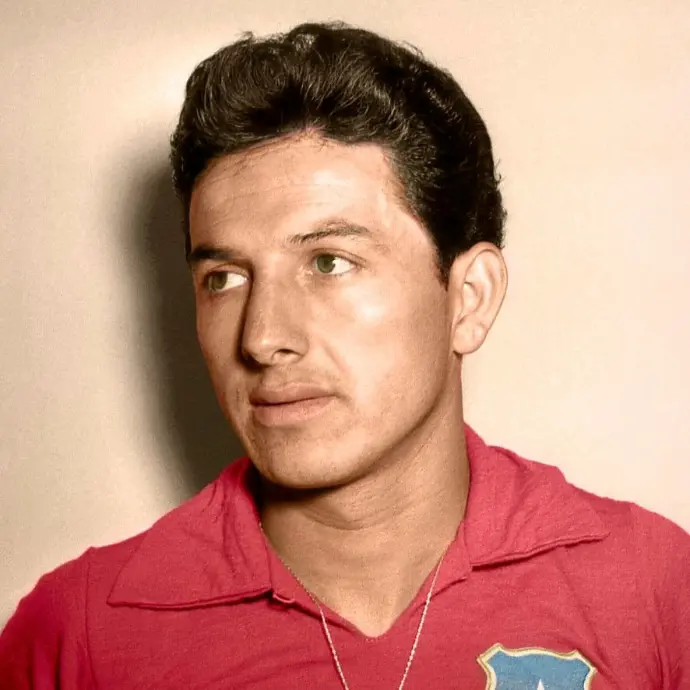
- Age : 25/26 years old
- Club : Universidad de Chile
- Statistics : 38 games, 23 goals, / assists
- Trophies : Finalist Copa Carlos Dittborn, Chilean League
- Individual Awards : World Cup TOTT, World Cup Golden Shoe (4 goals)
In 1962, Leonel Sánchez became a national icon and global standout, leading Chile through its most glorious football chapter. As the heartbeat of La Roja in the World Cup hosted on home soil, Sánchez dazzled with his left-footed artistry and fierce determination. He scored four goals—including two against Switzerland and a powerful strike against Italy in the infamous "Battle of Santiago"—guiding Chile to a historic third-place finish, their best ever showing at the tournament. His performances weren’t just effective—they were electric. Sánchez combined fiery passion with sublime technique, delivering pinpoint free kicks, clever passes, and bursts of flair that thrilled the crowd in Santiago. His leadership and relentless drive made him a talisman, embodying the pride of a nation rising on football’s biggest stage. Domestically, Sánchez continued to shine for Universidad de Chile, blending loyalty and brilliance as the club’s most beloved figure. In 1962, he wasn’t just a player—he was Chile’s soul in motion. Brave, bold, and utterly brilliant, Sánchez turned a local dream into a continental awakening, cementing his legacy as one of South America's true footballing legends.
#9 Vavá
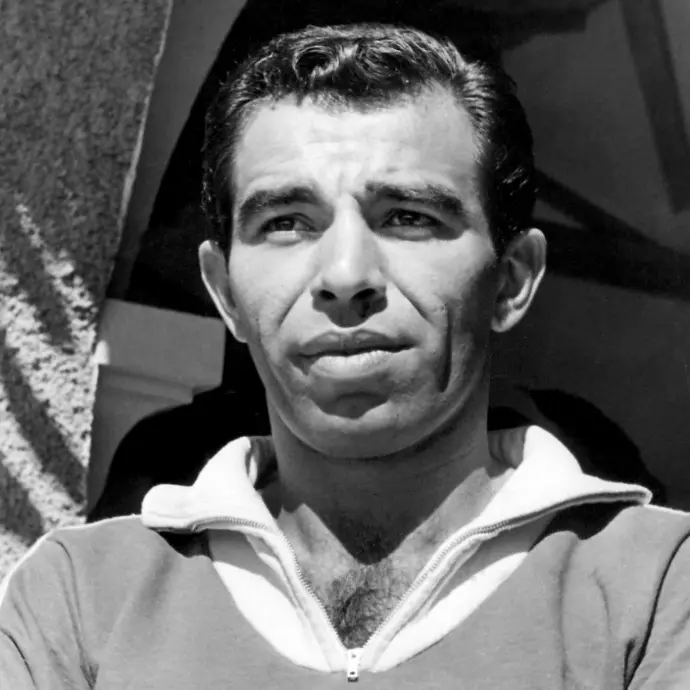
- Age : 27/28 years old
- Club : Palmeiras
- Statistics : 41 games, 23 goals, / assists
- Trophies : World Cup, Copa Oswaldo Cruz
- Individual Awards : World Cup TOTT, World Cup Golden Shoe (4 goals)
In 1962, Vavá—“O Peito de Aço” (Steel Chest)—wrote his name into World Cup history with another heroic campaign for Brazil, affirming his reputation as the man for the grand stage. Having already starred in the 1958 triumph, he returned to the global spotlight in Chile, this time assuming the role of a veteran leader and clutch performer. With Pelé injured early in the tournament, Vavá stepped up, scoring four vital goals—including two in the final against Czechoslovakia—to help Brazil secure back-to-back titles. His poise in front of goal and fearless attitude were the stuff of champions. At club level, Vavá continued to shine for Palmeiras, delivering consistent performances and showcasing his powerful presence in the box. Though overshadowed by Santos’s dominance, he remained one of Brazil’s most reliable strikers—intelligent in his movement, unshakable under pressure, and unrelenting in his drive. Vavá became the first player to score in two consecutive World Cup finals, a feat that cemented his place among the all-time greats. In 1962, he was Brazil’s quiet storm—less flamboyant than Garrincha, less mythic than Pelé, but every bit as decisive. For a nation that worships its football heroes, Vavá stood tall as the warrior who always answered when history came calling.
#8 Alberto Spencer
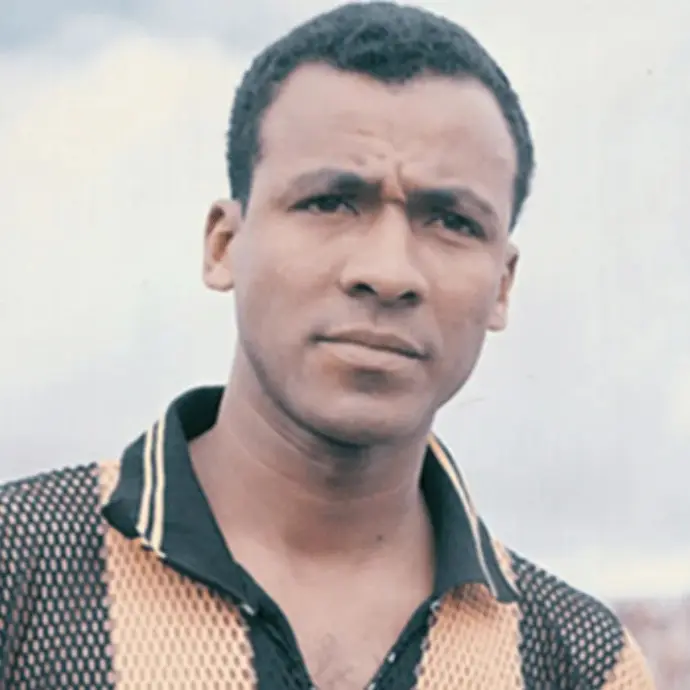
- Age : 24 years old
- Club : CA Peñarol
- Statistics : 50 games, 29 goals, / assists
- Trophies : Finalist Copa Libertadores, Uruguayan League
- Individual Awards : Copa Libertadores POTY, Copa Libertadores TOTY, Copa Libertadores Golden Shoe (6 goals), Uruguayan League TOTY, Uruguayan League Golden Shoe (16 goals)
In 1962, Alberto Spencer—El Cabeza Mágica—continued to carve out his reputation as South America’s most fearsome striker, blending elegance and power in equal measure. Representing both Ecuador and Uruguay at international level, Spencer defied borders and expectations with every explosive performance. With Peñarol, he was unstoppable. Spencer led the charge in their Copa Libertadores campaign, scoring crucial goals, including in the tense final against Santos—a showdown with Pelé himself. Though Peñarol fell short, Spencer’s relentless drive and aerial dominance were undeniable, earning admiration from fans and rivals alike. In league play, he remained a goal-scoring machine, his sharp instincts and perfect positioning making him a constant threat.
#7 Ferenc Puskás
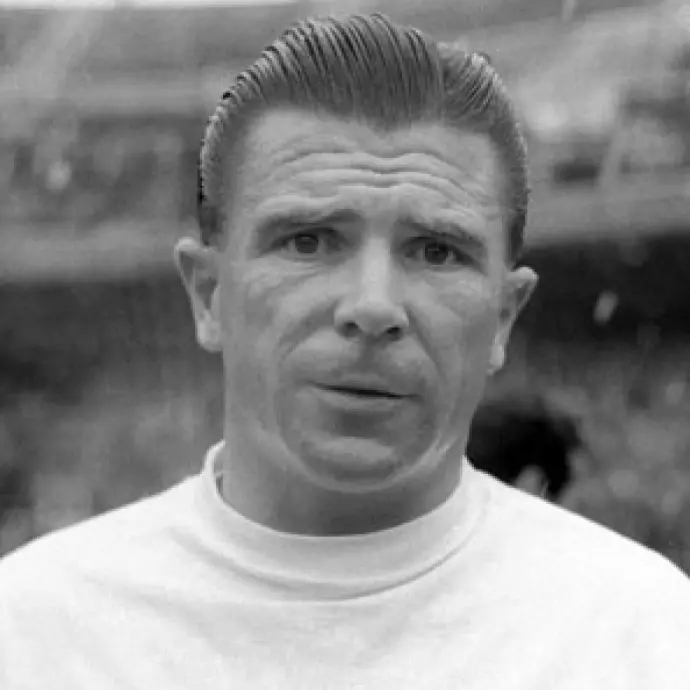
- Age : 34/35 years old
- Club : Real Madrid
- Statistics : 42 games, 31 goals, / assists
- Trophies : Finalist Champions League, Liga, Spanish Cup
- Individual Awards : Champions League TOTY, Liga TOTY
In 1962, Ferenc Puskás, the “Galloping Major,” continued to defy time and expectation, showcasing his legendary left foot and cerebral playmaking for both club and country. At 35, he remained a cornerstone of Real Madrid’s attack, contributing significantly to their La Liga triumph. His ability to dictate tempo, unleash pinpoint passes, and rifle in thunderous goals kept him among football’s elite—age be damned. Though Real Madrid fell short in the European Cup, Puskás still added brilliance to their campaign, scoring and setting up goals with his trademark precision. Internationally, he captained Hungary’s national side, trying to rekindle past glories. While the Magyars didn’t qualify for the World Cup in Chile, Puskás remained a revered figure—his influence felt in every training ground, every young Hungarian who dared to dream.
#6 Eusébio
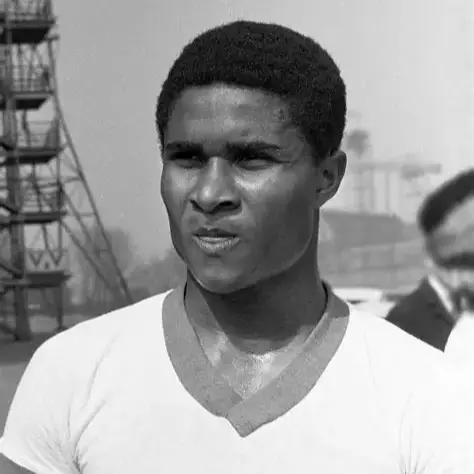
- Age : 20 years old
- Club : Benfica Lisbon
- Statistics : 41 games, 35 goals, / assists
- Trophies : Champions League, Finalist Intercontinental Cup, Portuguese Cup
- Individual Awards : Champions League TOTY, Portuguese League TOTY
In 1962, Eusébio began his ascent toward football immortality, blending raw power, blinding pace, and ruthless finishing into a package that stunned Europe and electrified Portuguese football. Though still relatively new to Benfica’s senior squad, the Mozambican-born prodigy showed glimpses of the devastation he would unleash in years to come. That season, he helped Benfica lift the Taça de Portugal and played a key role in their European Cup run—scoring twice in the semi-final against Tottenham and once in the final versus Real Madrid, a thrilling 5–3 triumph where his rising stardom was on full display. His performances weren’t just about goals—they radiated intensity and charisma, captivating fans across the continent. Eusébio’s thunderous right foot became his signature weapon, while his humility and determination off the pitch made him a beloved figure.
#5 Coutinho
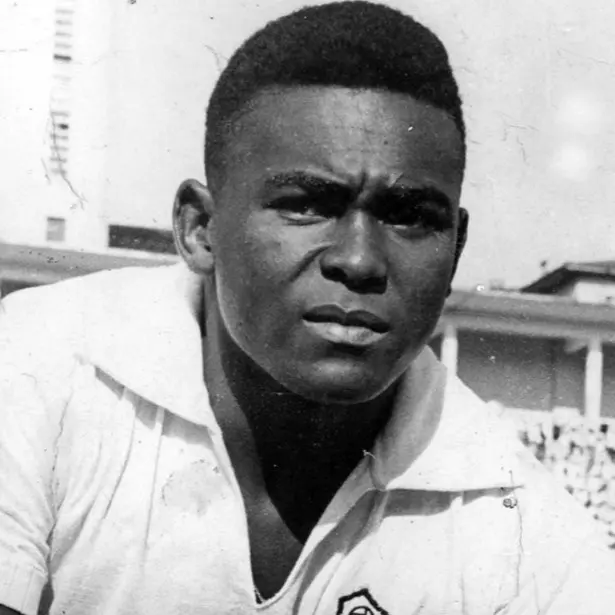
- Age : 18/19 years old
- Club : Santos FC
- Statistics : 38 games, 49 goals, / assists
- Trophies : World Cup, Copa Oswaldo Cruz, Copa Libertadores, Intercontinental Cup, Taça Brasil, São Paulo Championship
- Individual Awards : Copa Libertadores TOTY, Copa Libertadores Golden Shoe (6 goals), Taça Brasil TOTY, Taça Brasil Golden Shoe (7 goals)
In 1962, Antonio Wilson Vieira Honório—known to fans simply as Coutinho—emerged as Pelé’s perfect counterpart and an essential cog in Santos FC’s juggernaut. Though often overshadowed by the brilliance of “O Rei,” Coutinho’s razor-sharp instincts and telepathic connection with Pelé turned Santos’s attack into an unstoppable force. At just 19, he displayed the maturity of a seasoned striker, finishing the year with a torrent of goals across domestic and international competitions. His contributions were pivotal in Santos’s triumphant Copa Libertadores campaign. Coutinho struck key goals alongside Pelé, helping dismantle defenses with quick interplay and lethal finishing. In the final against Peñarol, their partnership dazzled—fluid, instinctive, and devastating. Santos then conquered the Intercontinental Cup, facing Benfica and AC Milan, where Coutinho’s off-the-ball intelligence opened space for Pelé to shine.
#4 Jimmy Greaves
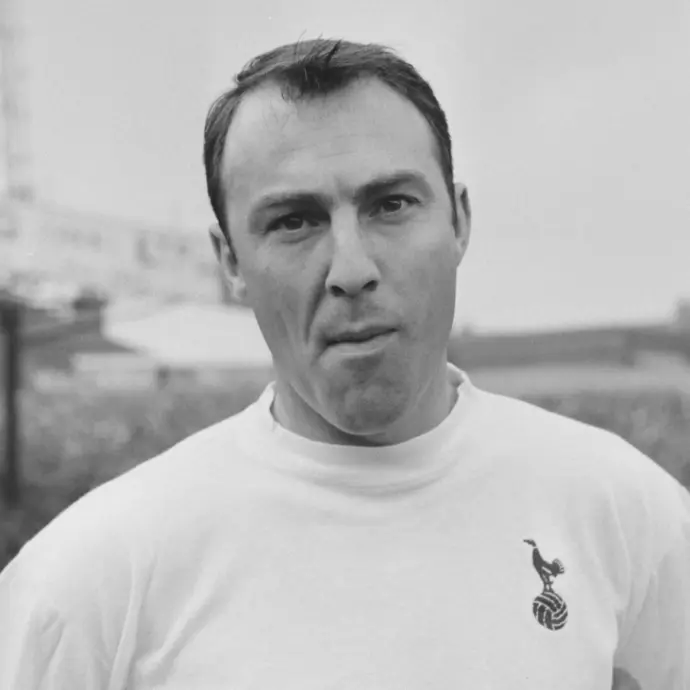
- Age : 21/22 years old
- Club : Tottenham Hotspur
- Statistics : 63 games, 58 goals, 5 assists
- Trophies : Finalist British Home Championship, Serie A, English Cup, Community Shield
- Individual Awards : /
In 1962, Jimmy Greaves reaffirmed his place among football’s elite with a season of dazzling skill, ice-cold finishing, and relentless consistency. The Tottenham Hotspur striker was a nightmare for defenders, topping the English First Division scoring charts with 37 goals—his most prolific league campaign. His uncanny ability to drift into space, read the game, and score from seemingly impossible angles solidified his reputation as England’s most clinical marksman. Internationally, Greaves continued to shine for the Three Lions. Though England exited the World Cup in the quarter-finals against Brazil, Greaves played every match, showing flashes of brilliance and creating key chances. His performance in the tournament was a testament to his tireless work rate and technical precision. Off the pitch, his sense of humor and charm endeared him to teammates and fans alike.
#3 Josef Masopust
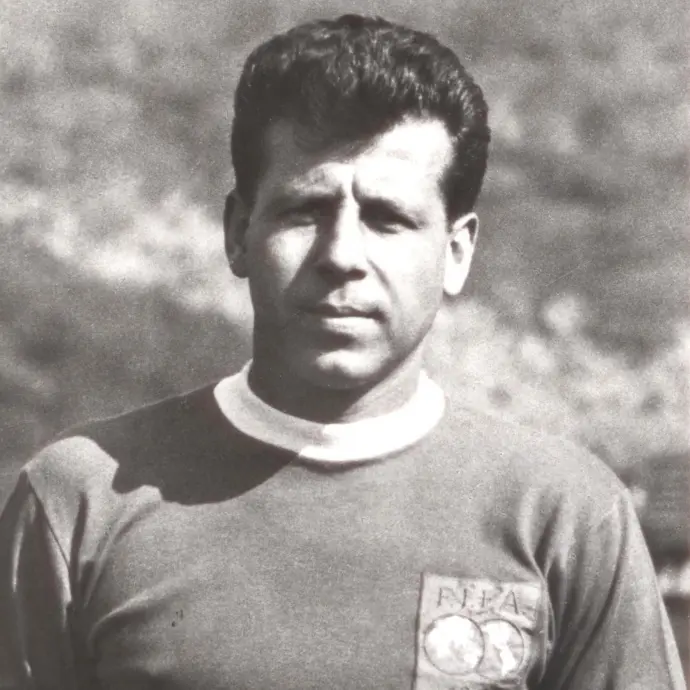
- Age : 31/32 years old
- Club : Dukla Prague
- Statistics : 37 games, 13 goals, / assists
- Trophies : Finalist World Cup, American Challenge Cup, Czechoslovakian League, Finalist Czechoslovakian Cup
- Individual Awards : World Cup TOTT, Czechoslovakian League TOTY
In 1962, Josef Masopust etched his name deeper into football’s pantheon with a year of tactical brilliance, grace, and heroic leadership. Anchoring the midfield for both Dukla Prague and Czechoslovakia, he orchestrated play with unmatched vision and composure. Domestically, he continued to shine for Dukla, helping his side secure the Czechoslovak First League title with his trademark poise and technical artistry. But it was on the global stage that Masopust's legend truly soared. Leading a resilient and inspired Czechoslovak squad, he propelled them to the World Cup final in Chile with commanding performances, including a decisive role in victories over Hungary and Yugoslavia. In the final against Brazil, it was Masopust who stunned the world by scoring the opening goal—a moment that symbolized his nation's defiant rise. Though Brazil ultimately triumphed, Masopust's performances earned universal acclaim for their elegance and grit.
#2 Garrincha
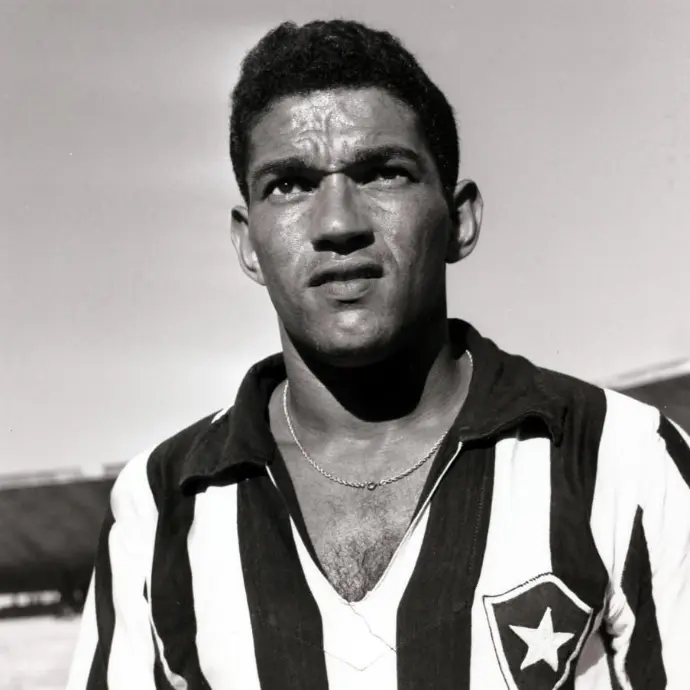
- Age : 28/29 years old
- Club : Botafogo
- Statistics : 43 games, 16 goals, 18 assists
- Trophies : World Cup, Copa Oswaldo Cruz, Brazilian League Vice-Champion, Rio Championship, Rio-São Paulo Tournament, Initial Tournament
- Individual Awards : World Cup POTT, World Cup TOTT, World Cup Golden Shoe (4 goals), Rio Championship POTT, Rio Championship TOTT
In 1962, Garrincha soared to mythical status, crafting a year of football that remains etched in Brazilian folklore. With Pelé sidelined early during the World Cup in Chile, it was Garrincha who mesmerized the planet, carrying the Seleção on his back with unmatched flair and charisma. He scored twice against England and another stunning brace against Chile in the semi-final, dazzling with his otherworldly dribbles and joyful unpredictability. Brazil lifted the trophy once again—and Garrincha, the "Joy of the People," became its beating heart. Domestically, he continued to enchant at Botafogo, his club performances rippling with elegance and audacity. Though his league numbers were modest compared to Pelé’s, Garrincha’s artistry was never measured in goals alone—it was felt in every gasp from the crowd, every defender left grasping at shadows.
Winner : Pelé
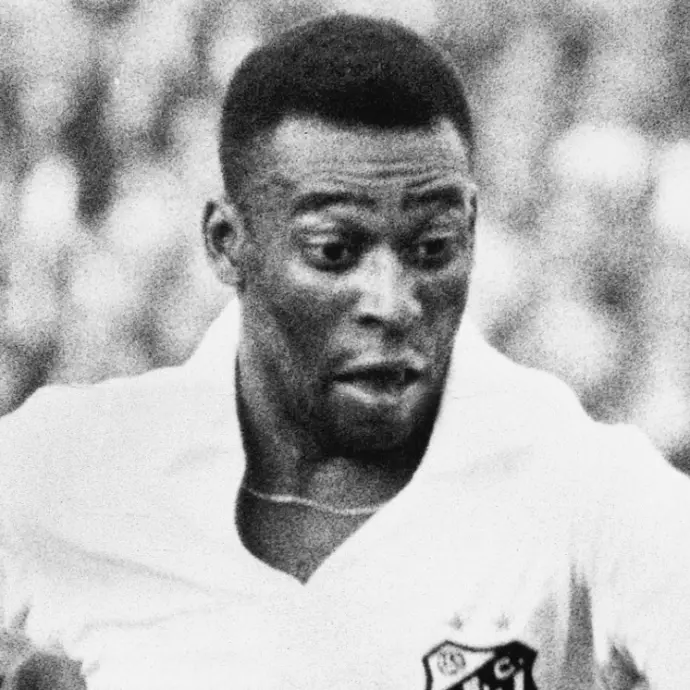
- Age : 21/22 years old
- Club : Santos FC
- Statistics : 40 games, 54 goals, 31 assists
- Trophies : World Cup, Copa Oswaldo Cruz, Copa Libertadores, Intercontinental Cup, Taça Brasil, São Paulo Championship
- Individual Awards : São Paulo Championship (37 goals)
In 1962, Pelé lit up the football world with an explosive display of brilliance that reaffirmed his status as the sport’s supreme icon. Santos steamrolled their way to domestic glory, clinching the Campeonato Paulista, with Pelé bagging 37 goals—a breathtaking tally that left defenders in awe and goalkeepers helpless. On the continental stage, Santos captured their maiden Copa Libertadores title, with Pelé playing a decisive role, netting twice against Peñarol in the final and dazzling throughout the tournament. Internationally, Pelé added a second World Cup crown to his name, despite being sidelined by injury after an early goal against Mexico. His brief presence was enough to ignite Brazil’s campaign, as the Seleção, led by Garrincha and Didi, swept through the tournament. Back home, Pelé continued to mesmerize in friendlies, scoring in bunches and turning every appearance into an event.